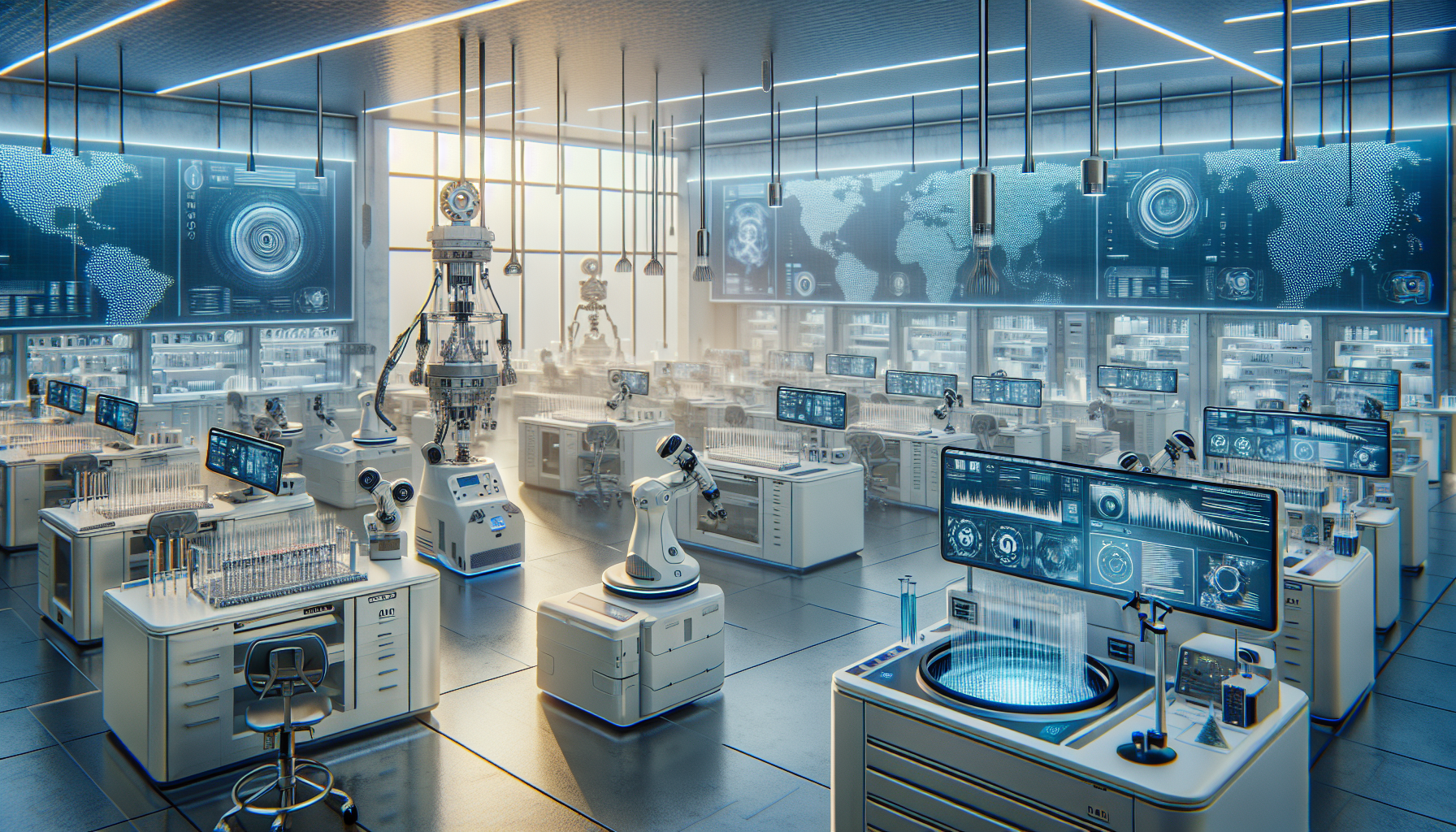In the dynamic field of scientific research and medical breakthroughs, a key element often remains unnoticed – the sophisticated laboratory technology. This narrative extends beyond the basic lab equipment to include advanced devices such as centrifuges, which are crucial for precisely separating materials of varying densities. This article delves into the evolution of laboratory technology, its impact on contemporary research, and the anticipated future trends.
The Journey of Laboratory Technology
The transition from basic, hand-operated tools to highly complex, automated systems narrates a story of relentless innovation. Earlier laboratories relied on fundamental devices requiring manual operation. Today, we are surrounded by intricate instruments that not only expedite research but also amplify the reliability of outcomes. Milestones like the creation of the microscope, the innovation of PCR machines, and the advent of robotic automation have entirely transformed research environments.
The invention of the centrifuge in the late 19th century marked a significant milestone in this journey. Centrifuges allowed researchers to separate substances based on their density, revolutionizing fields such as biochemistry and cellular biology. As technology progressed, centrifuges became more sophisticated, with the introduction of ultracentrifuges capable of generating immense centrifugal forces. These advancements have enabled scientists to isolate and study various biomolecules, including proteins, nucleic acids, and even viruses, with unprecedented precision.
Current Influence on Research
The advancements in laboratory technology have significantly propelled research fields, especially in healthcare and biology. The swift development of vaccines for COVID-19 stands as a testament to this fact, showcasing the indispensable role of advanced laboratory instruments in facilitating quick and reliable experimentation. Additionally, the precision and consistency provided by these technologies have minimized human errors, thereby bolstering the trustworthiness of scientific studies.
Anticipating Future Developments
The next phase in laboratory technology points to a larger role for automation alongside the integration of Artificial Intelligence (AI) and machine learning. These innovations promise to revolutionize experimental processes by enabling predictive analytics. The advent of lab instruments capable of not just data collection and analysis but also learning from the data suggests a future where research efficiency and effectiveness are significantly enhanced. Indeed, the horizon looks promising for laboratory technology, with the potential to redefine the limits of discovery and achievement.
The ongoing evolution of laboratory technology remains crucial for breakthroughs in scientific research and healthcare. From its modest beginnings to the state-of-the-art facilities we see today, laboratory technology has been a pivotal force in our ongoing quest to decipher and enhance the world around us.








